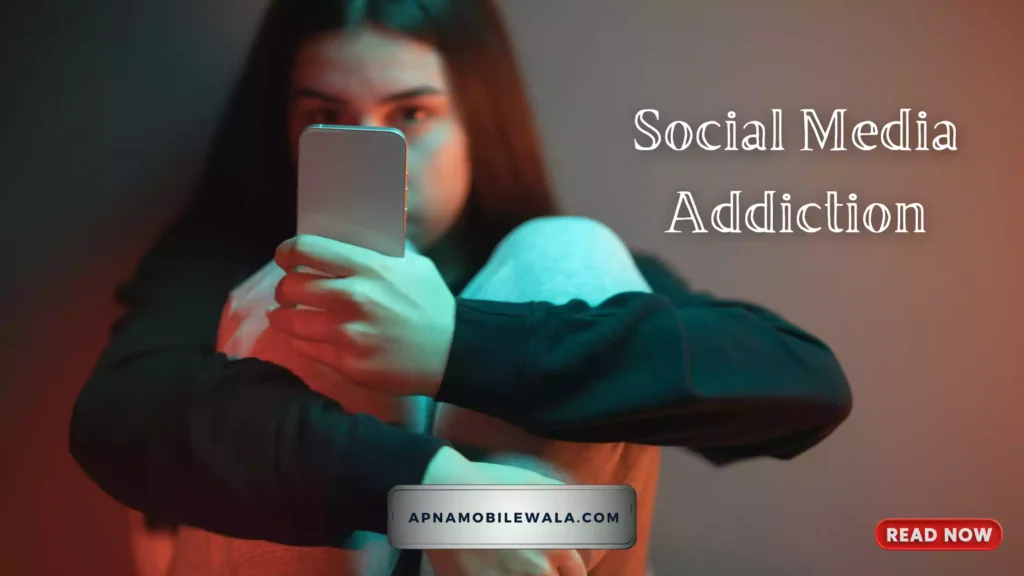Scrolling Through Life: How Social Media Impacts Our Mental Health
Social media. It’s become an undeniable fixture in our lives. We use it to connect with friends, share experiences, and stay informed. But beneath the curated feeds and filtered photos, social media can have a significant impact on our mental health.
Let’s explore both the positive and negative sides of social media use:
The Upside of Social
- Connection and Community: Social media platforms can help us connect with friends and family, especially those far away. They can also foster a sense of belonging by allowing us to find communities with shared interests.
- Self-Esteem Boost: Positive feedback on posts and connecting with like-minded individuals can provide a welcome boost to self-esteem.
- Support and Awareness: Social media can be a powerful tool for raising awareness about mental health issues and creating supportive online spaces.
The Downside of Scrolling
- Fear of Missing Out (FOMO): The constant stream of perfectly curated online lives can create a fear of missing out on exciting experiences, leading to anxiety and dissatisfaction.
- Social Comparison and Loneliness: Comparing ourselves to others’ filtered online personas can breed feelings of inadequacy and loneliness, even when surrounded by virtual connections.
- Cyberbullying and Negativity: Social media can be a breeding ground for cyberbullying and exposure to negativity, which can significantly impact mental well-being.
Finding Balance
So, how can we navigate the social media landscape and protect our mental health? Here are some tips:
- Be mindful of your consumption: Set time limits and be conscious of how much time you spend scrolling.
- Curate your feed: Follow accounts that inspire and uplift you, and unfollow those that trigger negativity.
- Focus on real-life connections: Social media can’t replace face-to-face interaction. Prioritize spending time with loved ones.
- Embrace the unfiltered: Share authentic moments, not just the highlight reel.
- Seek help if needed: If social media is negatively impacting your mental health, don’t hesitate to seek professional help.
Social media is a powerful tool, but it’s important to use it consciously. By being mindful of our consumption habits and prioritizing real-life connections, we can leverage the positive aspects of social media while minimizing its negative impacts on our mental well-being.
Impact of Social Media on the Mental Health of Students
Like, Follow, Woe: How Social Media Affects Student Mental Health
Social media is a double-edged sword for students. While it connects them to friends, offers support groups, and fuels creativity, it can also be a breeding ground for anxiety, depression, and feelings of inadequacy. Let’s delve deeper into the impact of social media on student mental health.
The Dark Side of the Scroll
- Comparison Trap: Students are bombarded with images of seemingly perfect lives, filtered vacations, and effortless achievements. This constant comparison can lead to feelings of inadequacy, low self-esteem, and social anxiety.
- Fear of Missing Out (FOMO): The carefully curated online world can trigger FOMO, making students feel like they’re constantly missing out on exciting events or experiences. This fear can lead to stress, sleep disturbances, and difficulty focusing on studies.
- Cyberbullying and Negativity: Social media anonymity can embolden negativity. Cyberbullying, hateful comments, and online harassment can leave lasting scars on a student’s mental well-being.
- Addiction and Sleep Deprivation: The constant pull of social media notifications and the “just one more post” mentality can lead to addiction. This disrupts sleep patterns, crucial for cognitive function and emotional regulation, further impacting mental health.
The Brighter Side of the Screen
- Social Connection and Support: Social media platforms can be lifelines for students, especially those feeling isolated or geographically distant from loved ones. Online communities and support groups can provide a sense of belonging and understanding.
- Positive Self-Expression: Social media allows students to express themselves creatively, share their talents, and connect with like-minded individuals. This positive self-expression can boost self-esteem and confidence.
- Information and Awareness: Social media can be a valuable tool for raising awareness about mental health issues, reducing stigma, and providing access to resources and support services.
Striking a Healthy Balance
- Set Time Limits: Schedule specific times for social media usage and stick to them. Explore tools and apps that help manage screen time.
- Curate Your Feed: Unfollow accounts that trigger negativity or comparison. Follow those that inspire, motivate, or provide positive content.
- Focus on Real Life: Prioritize face-to-face interactions, engaging in activities you enjoy offline.
- Embrace Authenticity: Share real moments, not just the highlight reel. Celebrate your imperfections and the journey, not just the destination.
- Seek Help When Needed: If social media is negatively impacting your mental health, don’t hesitate to reach out to a trusted adult, counselor, or therapist.
Remember, social media is a tool. It’s up to us, the students, to use it responsibly and prioritize our mental well-being. By being mindful of our online habits and fostering real-life connections, we can harness the positive power of social media while minimizing its detrimental effects.
Positive Effects of Social Media on mental Health
The Sunny Side of the Like Button: Social Media’s Positive Effects on Mental Health
Social media often gets a bad rap for its detrimental effects on mental health. However, when used consciously, it can be a powerful tool for fostering connection, self-expression, and even mental health support. Let’s explore some of the positive impacts of social media:
Connection and Community:
- Combating Loneliness: Social media platforms can be lifelines for people who feel isolated or geographically distant from loved ones. Online communities and groups built around shared interests or experiences can provide a sense of belonging and understanding.
- Social Support System: Social media can be a valuable space to connect with friends and family, offering a platform for encouragement, advice, and emotional support during difficult times.
Self-Esteem and Identity Exploration:
- Positive Self-Expression: Social media allows individuals to express themselves creatively, share their talents and passions, and connect with like-minded people. This positive self-expression can be a major boost to self-esteem and confidence.
- Identity Development: For adolescents and young adults, social media can be a safe space to explore different aspects of identity and connect with communities that affirm their individuality.
Mental Health Awareness and Support:
- Breaking Stigma: Social media can be a powerful tool for raising awareness about mental health issues, reducing stigma, and fostering open conversations.
- Finding Help and Resources: Platforms can connect users with mental health professionals, support groups, and online resources that can provide valuable information and guidance.
Empowerment and Advocacy:
- Spreading Positivity: Social media can be used to promote positive messages, self-care practices, and mental health resources, creating a ripple effect of well-being.
- Social Causes and Community Building: Social media can be a powerful tool for advocacy, allowing users to connect and raise awareness for mental health causes and initiatives.
Remember, maximizing the positive effects of social media involves mindful use. By following positive accounts, curating your feed, and prioritizing real-life connections, you can harness the power of social media to support your mental well-being.
Negative Effects of Social Media on Mental Health
The Dark Side of the Like Button: Social Media’s Negative Impact on Mental Health
Social media has revolutionized the way we connect, but its constant presence can have a significant downside, particularly for our mental health. Let’s explore some of the key negative effects of social media:
Comparisonitis and FOMO:
- Curated Perfection: Social media feeds are filled with carefully crafted highlights, vacations, and achievements. This constant exposure to seemingly perfect lives can fuel comparisonitis, leading to feelings of inadequacy, low self-esteem, and social anxiety.
- Fear of Missing Out (FOMO): The carefully constructed online world can make us feel like we’re constantly missing out on exciting events or experiences. This FOMO can lead to stress, sleep disturbances, and difficulty focusing on real-life responsibilities.
Cyberbullying and Negativity:
- Anonymity Breeds Cruelty: The veil of anonymity on social media can embolden negativity. Cyberbullying, hateful comments, and online harassment can inflict significant emotional harm, leading to anxiety, depression, and even suicidal ideation in vulnerable individuals.
- Echo Chambers and negativity spirals: Algorithms can create echo chambers where users are primarily exposed to content that reinforces their existing beliefs, even if negative. This can lead to increased polarization and exposure to negativity.
Addiction and Sleep Deprivation:
- The Dopamine Trap: Social media platforms are designed to be addictive. Notifications, likes, and comments trigger dopamine release, a feel-good chemical that keeps us coming back for more. This can lead to compulsive checking and difficulty disengaging.
- Sleepless Scrolling: The constant pull of notifications and the “just one more post” mentality can disrupt sleep patterns. Sleep deprivation is crucial for cognitive function and emotional regulation, further impacting mental health.
Social Isolation and Loneliness:
- Paradox of Connection: Ironically, excessive social media use can lead to feelings of isolation and loneliness. Real-life interactions and social skills development can suffer when we prioritize online connections.
- Misrepresentation and Misunderstanding: Online communication lacks nonverbal cues, leading to misinterpretations and misunderstandings. This can strain real-life relationships and contribute to feelings of isolation.
Remember, social media use can vary greatly. While some may experience significant negative effects, others may find positive aspects. It’s important to be mindful of your own usage and seek help if social media is negatively impacting your mental health.
How does Social Media Cause Depression
Social media doesn’t directly cause depression, but it can contribute to or worsen symptoms in several ways. Here’s how:
Negative Social Comparison: Social media feeds are filled with curated highlights, showcasing people’s best moments and achievements. Constant exposure to this idealized online world can lead to comparing your own life, leading to feelings of inadequacy, low self-esteem, and social anxiety. This can be a major trigger for depression.
Fear of Missing Out (FOMO): The carefully constructed online world can fuel FOMO, the feeling of constantly missing out on exciting experiences or social events. This fear can lead to stress, difficulty concentrating, and neglecting real-life activities, all of which can worsen depressive symptoms.
Cyberbullying and Online Harassment: The anonymity of online spaces can embolden negativity. Cyberbullying, hateful comments, and online harassment can inflict significant emotional harm, leading to anxiety, depression, and even suicidal ideation in vulnerable individuals.
Sleep Deprivation: The constant pull of notifications and the “just one more post” mentality can disrupt sleep patterns. Sleep deprivation is crucial for emotional regulation and mental well-being. When sleep is lacking, it can worsen existing depression or make someone more susceptible to developing it.
Social Isolation and Loneliness: Ironically, excessive social media use can lead to feelings of isolation and loneliness. Real-life interactions and social skills development can suffer when we prioritize online connections over face-to-face interactions. This lack of genuine connection can exacerbate feelings of loneliness, a major risk factor for depression.
Unrealistic Portrayals and Body Image Issues: Social media is full of airbrushed photos and unrealistic beauty standards. Constant exposure to these unrealistic portrayals can contribute to body image dissatisfaction and low self-esteem, feeding into depressive episodes.
It’s important to remember that social media use can vary greatly. While some people may experience significant negative effects, others may find positive aspects. Here are some tips for minimizing the negative impacts:
- Set time limits: Schedule specific times for social media usage and stick to them.
- Curate your feed: Unfollow accounts that trigger negativity or comparison. Follow those that inspire or motivate you.
- Focus on real life: Prioritize face-to-face interactions and activities you enjoy offline.
- Seek help if needed: If social media is negatively impacting your mental health, don’t hesitate to reach out to a trusted adult, counselor, or therapist.
By being mindful of your social media habits and prioritizing real-life connections, you can reduce the risk of social media worsening depression.
How does Social Media Affect Mental Health Statistics
Social media’s impact on mental health is a complex issue with ongoing research. While it can be difficult to isolate the exact cause-and-effect relationship, some statistics paint a concerning picture, particularly for adolescents and young adults:
- Increased Rates of Depression and Anxiety: Studies suggest a correlation between increased social media use and higher rates of depression and anxiety, particularly among teens. A 2018 University of Pennsylvania study linked increased social media use with a rise in depressive symptoms. (https://news.mit.edu/2023/alexey-makarin-social-media-harms-youth-mental-health-0804)
- Cyberbullying and Online Harassment: The anonymity of online spaces can embolden negativity. A 2019 study by Pew Research Center found that 59% of US teens have been exposed to cyberbullying (https://www.pewresearch.org/short-reads/2023/04/24/teens-and-social-media-key-findings-from-pew-research-center-surveys/). This negativity can contribute to anxiety and depression.
- Sleep Deprivation: The constant pull of social media notifications and the “just one more post” mentality can disrupt sleep patterns. A 2018 British study found a link between social media use and decreased sleep quality, which is associated with depression and anxiety. (https://www.nbcnews.com/health/health-news/social-media-mental-health-anxiety-depression-teens-surgeon-general-rcna85575)
However, it’s important to note that social media can also have positive effects:
- Social Support and Community: Social media can connect individuals with friends and family, especially those geographically distant. Platforms can also provide a sense of belonging through communities built around shared interests.
- Mental Health Awareness: Social media can be a powerful tool for raising awareness about mental health issues, reducing stigma, and fostering open conversations. This can lead to earlier intervention and better mental health outcomes.
It’s important to consider these statistics as correlations, not causations. Other factors like pre-existing mental health conditions or social pressures can also play a role.
Here are some resources for further exploration:
- National Institute of Mental Health: https://www.nimh.nih.gov/health/statistics/mental-illness
- Centers for Disease Control and Prevention: https://www.cdc.gov/mentalhealth/index.htm
- Pew Research Center: https://www.pewresearch.org/topic/internet-technology/platforms-services/social-media/
Thanks for Reading!
- How Will We Access Virtual Worlds on Our Phones?
- The Rise of the Subscription Phone
- Sony Xperia 1 VI Price and Review
- Realme 12 Pro Plus Review and Price
- The Future of Mobile Gaming with AR, VR



